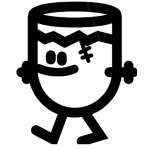As the Halloween season approaches, I have again been reminded of the frequent concern of parents who are considering using medication as part of the treatment plan for their child’s emotional-behavioral problems.
The dilemma that I and many other clinicians repeatedly hear from parents is that they want their child’s symptoms improved without changing the child’s personality and specifically, they don’t want their child to turn into a “zombie.” 
The raising of this concern is completely legitimate and there is surprisingly little data on the personality effects of medications, especially in children. What is remarkable to me, however, is the implication that while being a zombie is not okay with the parents, it might be okay with me.
To counter such worries, I now quite specifically say to parents and children that “zombification is not an acceptable outcome to me.” Very often, this statement brings a smile and a fair amount of relief.
How did we as clinicians find ourselves being perceived as people comfortable with creating little zombies? Does our field need to accept some responsibility for past actions or has One Flew Over the Cuckoo’s Nest just been shown one too many times? In all honesty, I have never met or heard of a doctor who would see a dull, listless child and declare that treatment a success.
Regardless of the origin, I have learned that when discussing the possibility of medications that there is real value is saying quite explicitly to parents and to children that I am not interested in continuing medications that cause side effects or that don’t work.
Those interested in making zombies will have no trouble finding costumes at Halloween.

